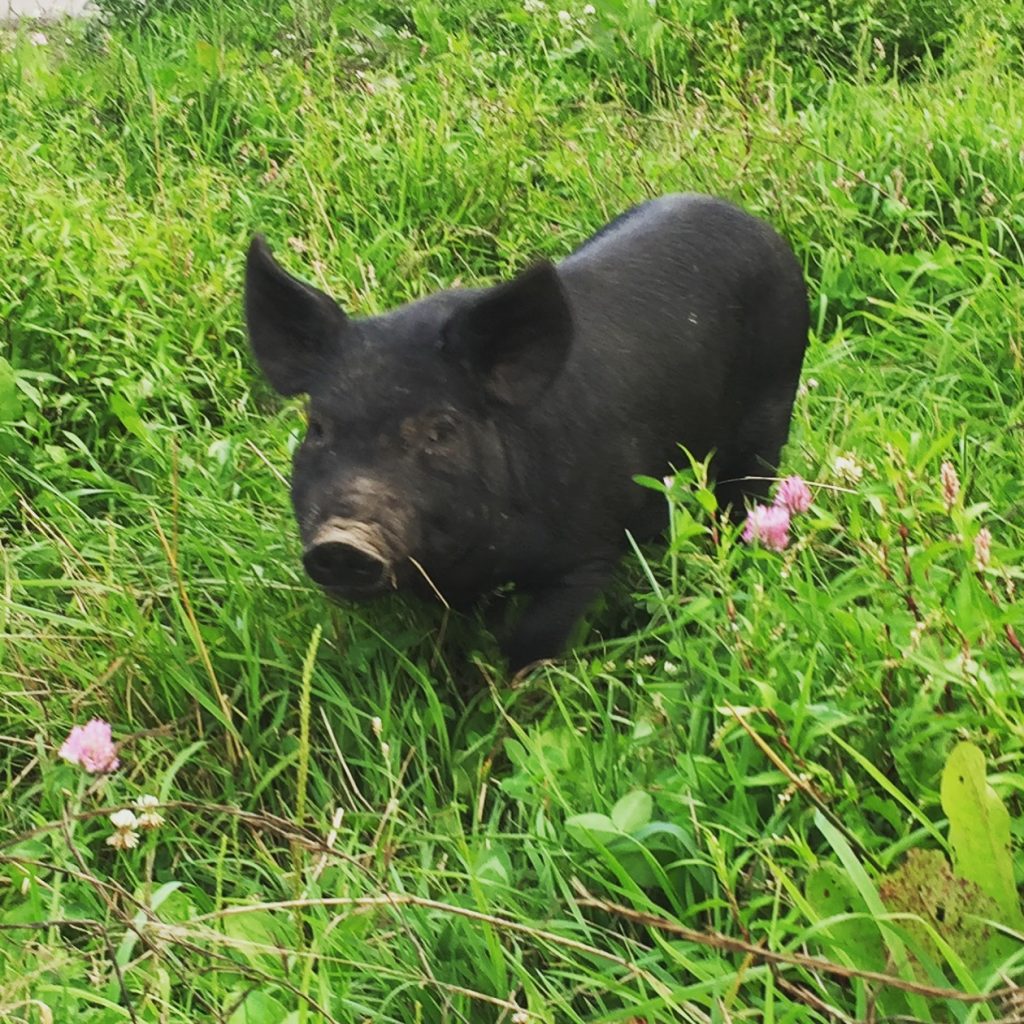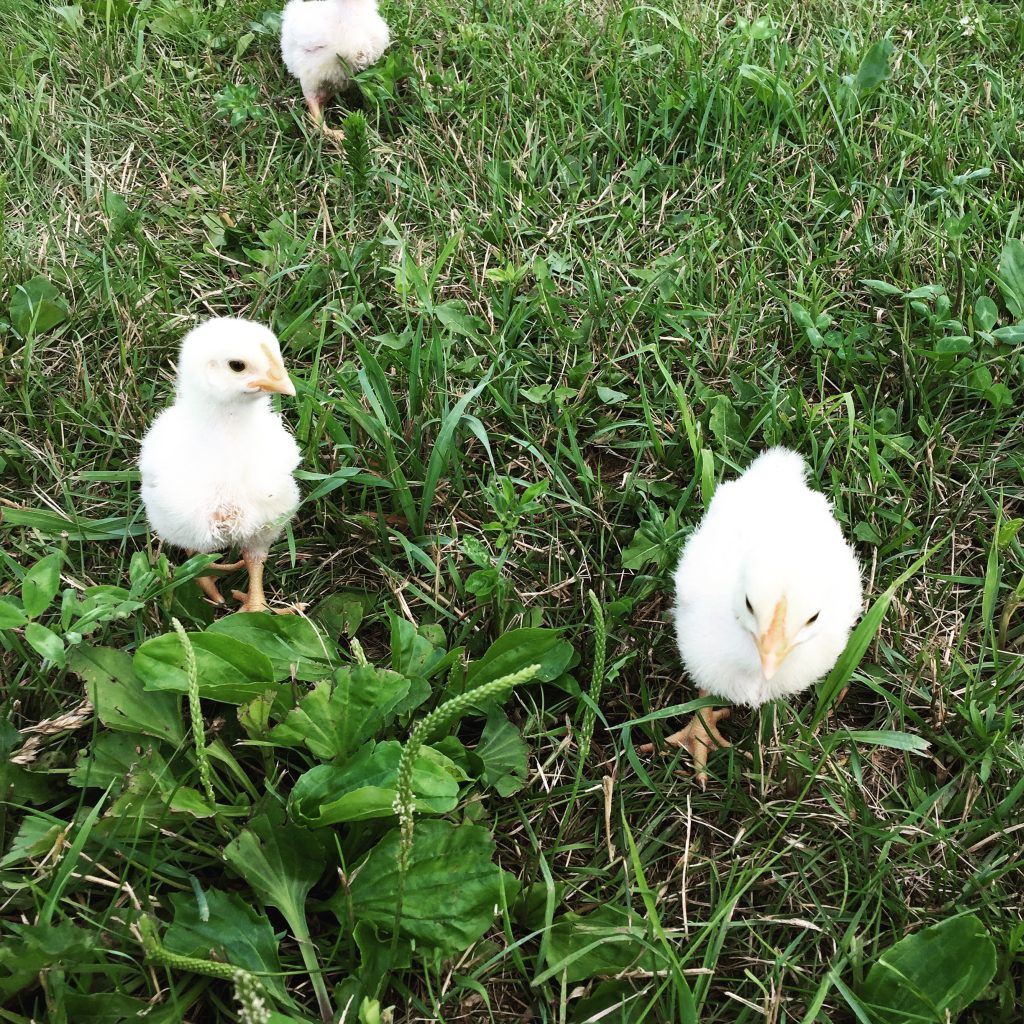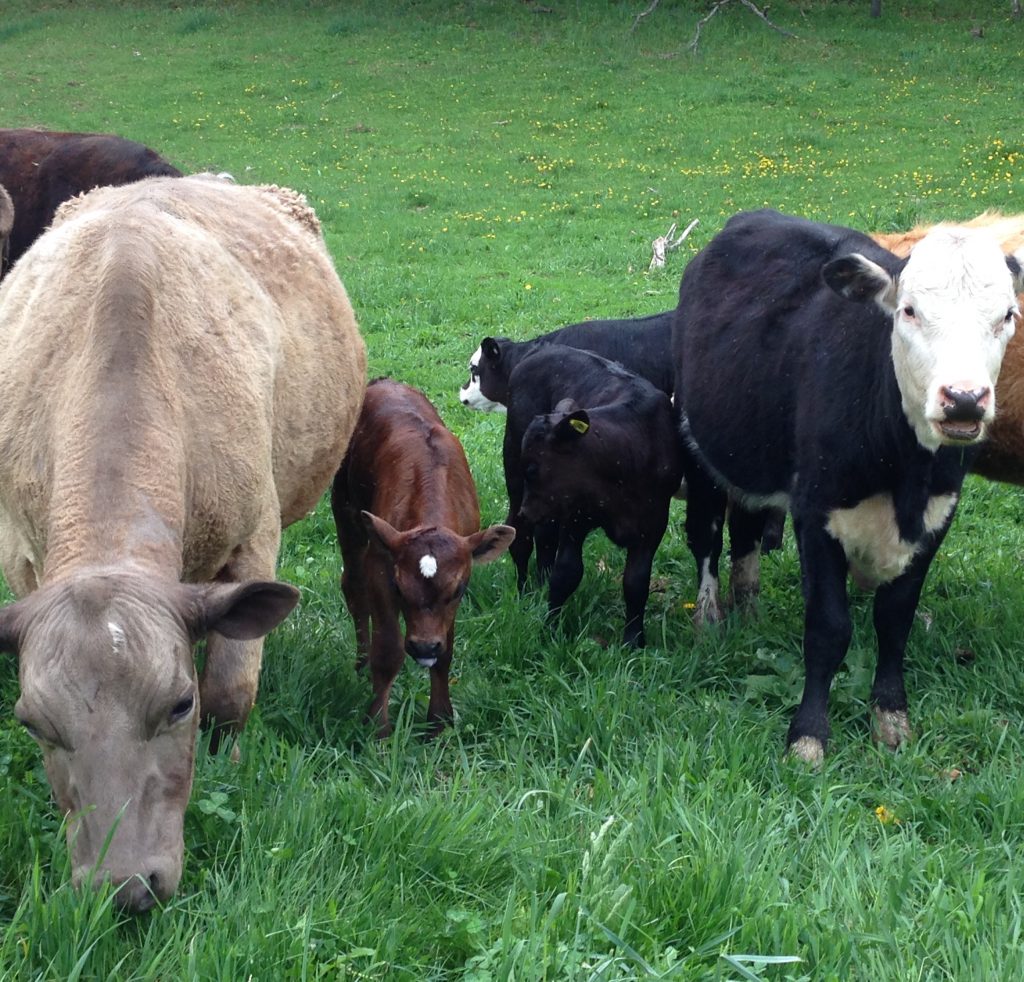What does Pasture Raised mean at Valley Pasture Farm?
To us, pasture raised means that we do our very best to have our animals eat the freshest grass & forages available. From April to October, we move them onto fresh, growing grass frequently – sometimes twice a day!
It’s all part of a pasture-based management system called Intensive Rotational Grazing. Well managed pasture, which is our goal, can increase the quality of the plants growing in the pasture, increase soil fertility, create pastures that are more drought resistant, control less desirable plants (aka weeds), and extend the grazing season.


On pasture, the animals get fresh, nutrient-dense forage every day. They also get daily human interaction, which makes life much less stressful for all involved for things like hoof trimmings, wool shearing, and any medical care or assistance needed. It’s amazing to see humans, animals, and plants all working together!
In addition to pasture forages, our chickens and pigs have their diet supplemented with corn-free/soy-free feed mixes. (Which means those with corn & soy allergies can enjoy our eggs & meat!)
Through the winter, we feed our animals mixed hay that was cut from our own pastures or from other farmers in the area. We also supplement their diets with local oats and corn-free/soy-free feed mixes depending on the nutritional needs of each animal.
Since most of the animals on the farm in the winter are used for breeding, they need some extra protein and fat in their diets to grow healthy babies and stay in great shape themselves.

Are you ready to try some pasture raised deliciousness?

Shop Our Online Store
Shop our pasture raised meats & eggs, as well as other goodies like honey, applesauce, and more!

Arrange Delivery or Pick-up
Have your order delivered right to your home or choose from 3 weekly pick-up sites during online check-out.

Fill Your Freezer
Take comfort in knowing you can easily feed your family quality, all-natural meat from your local farmer.
Our Journey to Pasture Raised and Naturally Processed
In 2012, our young daughter was breaking out in hives and terrible rashes that stumped her pediatrician. An interesting series of events led her to being diagnosed with multiple allergies & sensitivities. Food additives being one of the biggest culprits. As I learned more about petroleum based dyes & preservatives, nitrates, and MSG, I thought we may never be able to eat sausage, bacon, or pepperoni again! Eventually, I was able to find some companies that offered products without the additives. But, very few were easily accessible in our area at that time.
We then decided to raise our own animals without corn or soy and have it processed without nitrates, MSG, and other ‘unnatural’ food additives. Shortly after, family and friends starting asking us to raise meat for them. As our journey into “real” food continued, we heard from more and more people who were struggling. So in 2017, we started offering our pasture raised meats to our community at farmers markets.
Since we started selling our meat & eggs, we clearly see the demand and are working to grow our herds & flocks each year!
